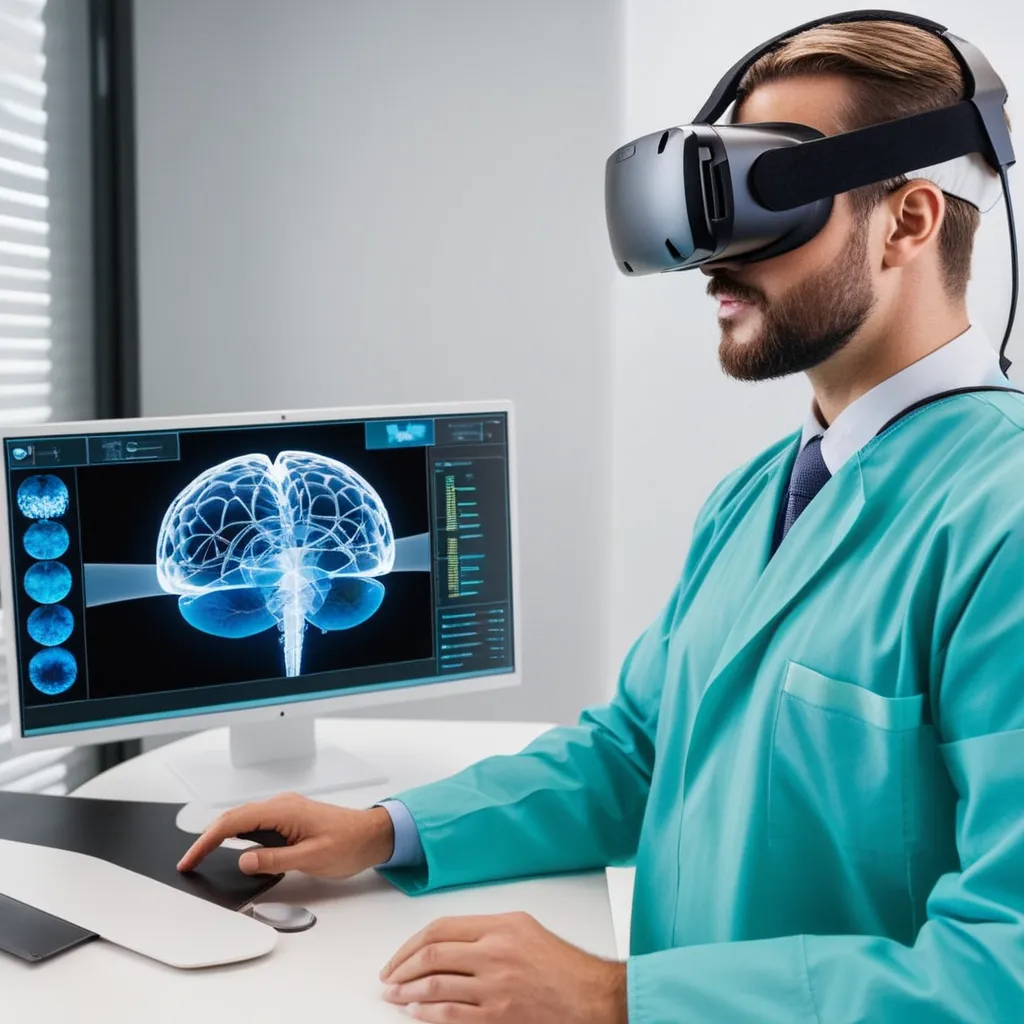How Virtual Reality is Transforming Medical Training
Virtual Reality (VR) has come a long way from being a tool primarily used for gaming and entertainment. In recent years, it has found a groundbreaking application in the field of medical training. This article explores how virtual reality is revolutionizing the way medical professionals learn and practice, with a touch of personal experience.

A Leap into the Virtual World
Before we dive into the advancements in medical training, let me share a personal story about my own encounter with virtual reality in a medical context. A close friend of mine is a medical student, and one day, he invited me to experience a VR simulation of a surgery procedure. I was intrigued and a bit skeptical about how realistic it could be.
As I put on the VR headset and picked up the controllers, I was transported into an operating room. The level of detail was astonishing. I could see the surgical instruments, feel the virtual environment, and even interact with the patient. It was a surreal experience that made me realize the immense potential of vr in medical training.
Immersive Learning Environments
One of the primary ways VR is transforming medical training is by providing immersive learning environments. Medical students and professionals can step into virtual hospitals, clinics, and operating rooms, gaining hands-on experience without the risks associated with real patients.
Realistic Simulations
VR simulations are incredibly realistic, replicating the sights, sounds, and even the tactile sensations of medical procedures. This level of immersion allows learners to practice and refine their skills in a safe and controlled environment.
Lifelike Patient Encounters
VR also enables medical professionals to interact with virtual patients. These computer-generated patients can exhibit a wide range of symptoms and conditions, providing valuable experience in diagnosis and patient care.
Building Empathy
Interacting with virtual patients helps medical students develop empathy and communication skills. They can learn how to convey difficult news, establish rapport, and make informed decisions under pressure.
Surgical Training and Practice
For aspiring surgeons, VR has opened up new avenues for honing their skills. Surgical simulations in VR allow surgeons to practice complex procedures repeatedly until they achieve mastery.
Reducing Surgical Errors
The ability to practice surgeries in a risk-free environment can significantly reduce surgical errors and enhance patient safety. Surgeons can refine their techniques and learn from their mistakes without compromising patient outcomes.
Remote Learning and Collaboration
Another remarkable aspect of VR in medical training is its potential for remote learning and collaboration. Medical professionals can connect with experts and peers from around the world in virtual spaces, sharing knowledge and experiences in real time.
Bridging Geographic Gaps
VR breaks down geographical barriers, allowing medical students and professionals to access expertise and training opportunities that may not be available locally. This global connectivity fosters a sense of community and collaboration.
I recently attended a virtual medical conference where experts from different continents discussed the latest advancements in the field. The ability to connect with a diverse group of professionals and share insights in a virtual space was truly eye-opening.
The Future of Medical Training
As VR technology continues to evolve, the possibilities in medical training are endless. From enhancing surgical skills to improving diagnostic abilities and fostering global collaboration, virtual reality is shaping the future of healthcare education.
In conclusion, virtual reality is not just a technological gimmick; it's a transformative tool in the realm of medical training. Its ability to create immersive learning environments, provide lifelike patient encounters, and facilitate remote collaboration is revolutionizing the way medical professionals prepare for their careers. As VR becomes more accessible, it holds the promise of better-trained medical personnel and improved patient outcomes.

No comments:
Post a Comment